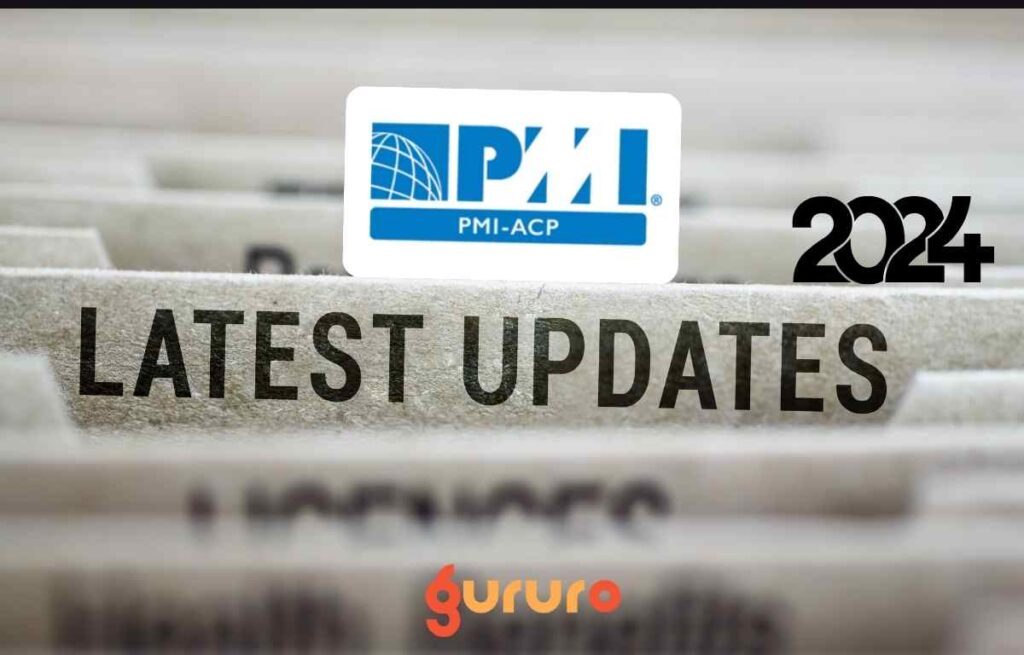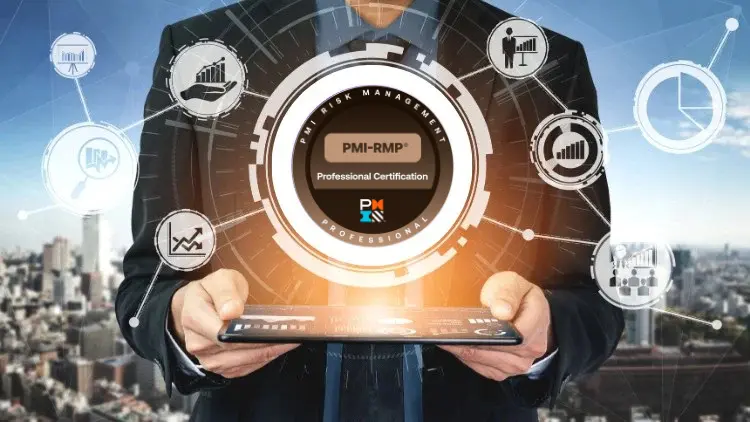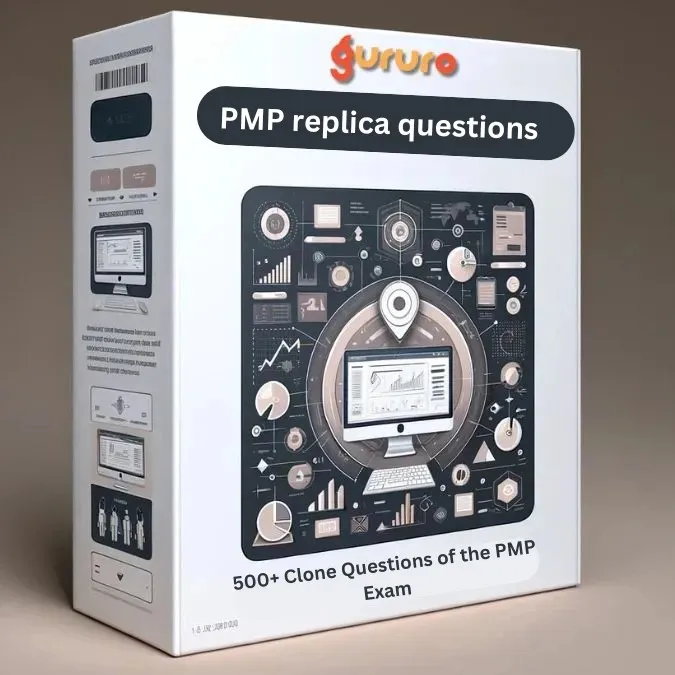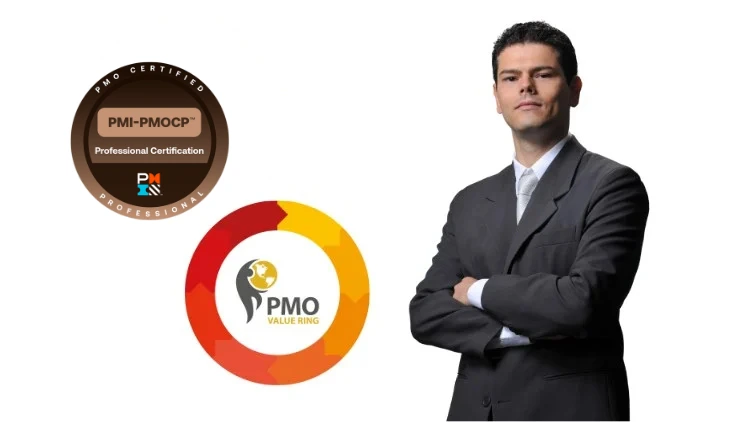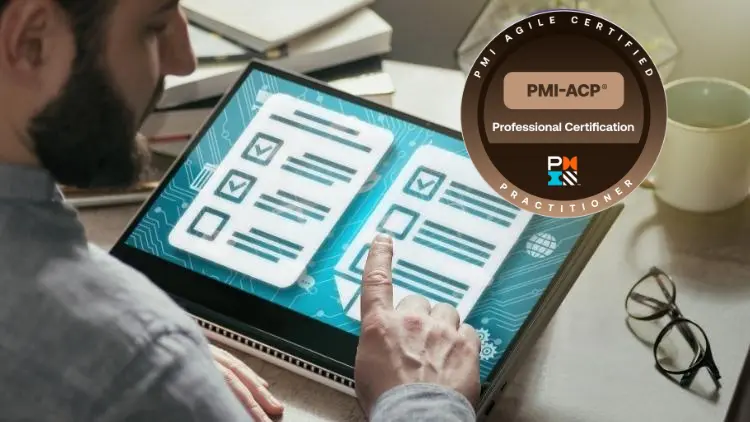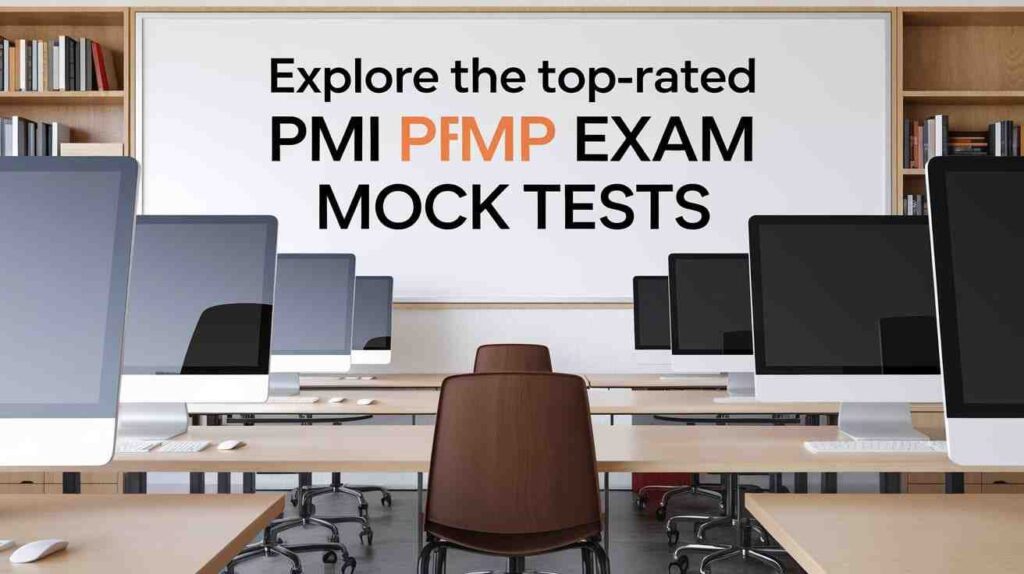In this article, we explore the PMI-ACP exam 2026 updates, highlighting the important changes that agile practitioners need to know. From new focus areas like value-driven delivery to enhanced leadership skills, this guide explains what’s new in the PMI-ACP certification and how it can impact your career. Stay ahead of the curve by understanding these updates and preparing effectively for the exam.
Introduction: Overview of PMI-ACP Certification
The PMI Agile Certified Practitioner (PMI-ACP) certification is one of the most sought-after credentials for professionals who practice agile methodologies in project management. Offered by the Project Management Institute (PMI), this certification recognizes individuals with extensive experience using agile principles, tools, and techniques. It validates a practitioner’s knowledge and ability to apply agile practices in real-world project scenarios, making it particularly valuable for professionals working in fast-paced and dynamic environments.
As organizations increasingly adopt agile methodologies to drive innovation, improve efficiency, and deliver value faster, the PMI-ACP has gained immense significance. It covers a range of agile approaches, including Scrum, Kanban, Lean, and XP (Extreme Programming), making it versatile across industries. By earning this certification, practitioners demonstrate their commitment to staying current with best practices in agile project management, ultimately enhancing their career prospects and positioning themselves as leaders in agile-driven organizations.
The PMI-ACP certification not only strengthens a professional’s ability to work on agile teams but also empowers them to lead teams with agile principles that prioritize collaboration, customer focus, and continuous improvement.
Ace PMI-ACP on Your First Try
Why the PMI-ACP exam 2026 updates is Important
The 2025 PMI-ACP exam update is a significant milestone in the evolution of agile certification, driven by the rapidly changing landscape of project management and the growing needs of both organizations and agile practitioners. Here’s why these updates are crucial:
1. Adapting to Evolving Agile Practices
Agile methodologies have been evolving at a fast pace, with new tools, frameworks, and best practices emerging regularly. The 2025 update reflects these changes, ensuring that the PMI-ACP certification stays aligned with the latest developments in the field. By incorporating these advancements, the updated exam will better assess a candidate’s ability to manage modern agile projects effectively.
2. Meeting the Needs of Experienced Practitioners
As agile becomes more widely adopted across industries, experienced practitioners face increasingly complex project environments. The updated exam emphasizes not only basic agile principles but also more advanced concepts such as value-driven delivery, continuous improvement, and adaptive planning. This ensures that the certification remains relevant for seasoned professionals who are looking to enhance their leadership skills in agile environments.
3. Aligning with Organizational Goals
Organizations today require agile teams that can drive innovation, respond quickly to market changes, and deliver customer value consistently. The new exam content addresses these needs by focusing on value delivery, stakeholder engagement, and problem-solving capabilities. By updating the exam to reflect these organizational priorities, PMI is ensuring that certified practitioners are equipped to contribute to strategic business outcomes.
4. Enhancing the Learner’s Journey
In addition to updating the exam itself, PMI is launching a range of supporting learning resources to improve the candidate experience. These resources are designed to guide learners through their certification journey more effectively, offering enhanced exam prep tools, practice tests, and tailored learning paths. This ensures that candidates are well-prepared to meet the demands of the updated exam and succeed in their agile careers.
5. Validating Skills for the Future
The 2025 PMI-ACP exam update underscores the need for agile practitioners to continuously learn and adapt. By keeping pace with the latest trends in agile project management, the updated certification serves as a powerful validation of an individual’s ability to navigate and lead in today’s dynamic project environments. For both professionals and organizations, this ensures the certification remains a trusted benchmark of agile expertise in the years to come.
In summary, the 2025 PMI-ACP exam update is essential because it not only reflects the latest agile practices but also aligns with the evolving challenges faced by agile professionals and organizations. This ensures that the certification remains a valuable asset for career growth and business success.
What’s Changing in the PMI-ACP Exam?
New Exam Launch Date: November 8, 2026
The new PMI-ACP exam format is set to launch globally on November 8, 2026. This marks a significant update to the certification, designed to better meet the evolving needs of agile practitioners and organizations. From this date onward, candidates will be taking an updated version of the exam that reflects the latest trends and demands in agile project management.
The global rollout ensures that professionals from all regions will have access to the updated exam format simultaneously. PMI is committed to providing a smooth transition for both new candidates and those who have been preparing for the current version of the exam. As part of this rollout, PMI has also introduced a range of updated learning resources and preparation tools to help candidates succeed in this new exam environment.
This update represents a proactive step in keeping the PMI-ACP certification at the forefront of agile project management, maintaining its relevance in a fast-changing, technology-driven world.
Updated Focus Areas of PMI-ACP
Agile Principles and Mindset
One of the key focus areas in the 2026 PMI-ACP exam update is a stronger emphasis on agile values, principles, and mindset. Agile practitioners are expected to not only understand these principles but also apply them effectively across a wide range of projects and organizational contexts. The updated exam will delve deeper into the agile mindset, encouraging candidates to think beyond just the practices and focus on fostering an environment of collaboration, adaptability, and continuous improvement.
The exam will now place greater importance on agile leadership, emphasizing how practitioners can inspire teams to embrace agile principles like transparency, trust, and flexibility. Candidates will be tested on their ability to build a shared mindset between teams and stakeholders, ensuring alignment with agile values throughout the project lifecycle. This updated focus highlights the importance of agile as more than just a methodology—it’s a mindset that guides how teams approach problems and deliver value.
Value-Driven Delivery
The concept of value-driven delivery is central to agile, and the updated exam further emphasizes this critical aspect. The 2025 PMI-ACP exam will include more scenarios and questions that test a candidate’s ability to focus on delivering value incrementally. Agile practitioners are expected to prioritize work that offers the highest value to stakeholders, and the updated exam will assess how well candidates can make decisions that maximize stakeholder value throughout a project.
The new focus includes evaluating how agile practitioners approach incremental delivery by breaking down complex deliverables into smaller, manageable units that can be reviewed and adapted based on stakeholder feedback. The updated exam will also focus on minimizing non-value-added work, asking candidates to demonstrate their skills in identifying and eliminating waste to ensure that every task contributes directly to delivering customer value. This enhanced focus aligns with agile’s core principle of delivering early and often to respond quickly to changing needs and priorities.
Stakeholder Engagement and Team Performance
In the updated exam, stakeholder engagement and team performance are key areas of assessment. Agile practitioners are increasingly expected to foster strong, collaborative relationships with stakeholders, ensuring that their needs and expectations are met continuously throughout the project. The 2026 PMI-ACP exam update introduces more focus on how well candidates can build trust with stakeholders, promote active engagement, and facilitate clear communication.
Candidates will be assessed on their ability to create a transparent environment where stakeholders have full visibility of the project’s progress and potential risks. The ability to manage stakeholder expectations by providing regular feedback loops and prioritizing work based on stakeholder input will be crucial for success in the updated exam.
Regarding team performance, the exam will test candidates’ ability to build and lead high-performance, self-organizing teams. This includes fostering a collaborative atmosphere, encouraging innovation, and resolving conflicts in a constructive manner. The new focus highlights the importance of servant leadership, where agile practitioners are expected to support their teams in a way that empowers them to achieve their full potential. The updated exam will also place more emphasis on measuring and improving team performance through metrics such as velocity and feedback-driven continuous improvement.
In summary, these updates aim to ensure that PMI-ACP certified professionals are well-equipped to lead both stakeholders and teams effectively in complex, agile environments while continuously delivering value.
Additional Domains and Tasks of PMI-ACP
Problem Detection and Resolution
The 2026 PMI-ACP exam introduces a stronger emphasis on real-time problem-solving skills, a critical aspect of agile environments where issues often arise unexpectedly. Agile practitioners are expected to not only identify problems early but also address them in a timely and effective manner. The updated exam focuses on assessing candidates’ abilities to detect impediments, risks, and issues quickly and prioritize them based on their potential impact on the project.
Candidates will be tested on their capability to foster an environment where problem detection is continuous, encouraging team members to surface and address challenges openly. This means creating a culture where problems are not hidden but discussed and resolved through collaboration and transparency. The updated exam will include scenarios that assess how well candidates can implement root cause analysis techniques (such as the 5 Whys or fishbone diagrams) to not only resolve issues but also prevent their recurrence.
Moreover, the new exam evaluates how practitioners can communicate problem resolution status to stakeholders and team members, ensuring that everyone stays informed about threats, risks, and the measures being taken to address them. Agile leaders are expected to maintain a visible, prioritized list of issues that helps teams remain accountable and proactive in resolving problems, ultimately driving continuous delivery of value.
Continuous Improvement (Product, Process, People)
The updated PMI-ACP exam places a heavier focus on continuous improvement across all areas of agile practice, reinforcing the idea that agile practitioners should always be looking for ways to enhance the product, process, and the people involved. Continuous improvement is a fundamental agile principle, and the 2026 exam assesses candidates’ ability to lead retrospectives and process improvement initiatives that drive positive change.
Candidates will be evaluated on their skills in implementing feedback loops that improve product quality by gathering stakeholder and customer input early and often. Agile practitioners must continuously seek ways to increase the value of their products, and the updated exam includes questions that assess how well candidates can conduct incremental improvements through regular testing, demonstrations, and refinement.
In addition to product improvements, the exam will test how candidates apply Kaizen principles—ensuring that processes are regularly reviewed and optimized. This includes removing waste in workflows, increasing efficiency, and making iterative adjustments that lead to better results. The updated content also includes a stronger focus on tailoring processes to align with organizational needs and team dynamics, demonstrating that one size does not fit all in agile practice.
Finally, the updated exam highlights continuous improvement in people, expecting candidates to show how they can foster an environment of learning and development within their teams. This includes promoting a culture of experimentation where team members feel safe to try new approaches, learn from their experiences, and improve their skills. The ability to mentor, coach, and support the development of generalizing specialists—team members who possess a broad range of skills—will also be tested.
In summary, the 2026 PMI-ACP exam places greater importance on both problem-solving and continuous improvement, ensuring that agile practitioners are equipped to handle real-world challenges while driving long-term success in their projects.
How Will the 2026 PMI-ACP Exam Improve Relevance?
Addressing the Needs of Experienced Agile Practitioners
The 2026 PMI-ACP exam update is specifically designed to meet the growing expectations of experienced agile professionals. As agile methodologies have matured, so have the complexities that practitioners face in real-world environments. The updated exam goes beyond assessing basic agile knowledge and delves deeper into advanced concepts such as value-driven delivery, adaptive planning, and continuous improvement.
For seasoned professionals, the updated exam provides a more rigorous evaluation of their problem-solving capabilities and leadership in agile teams. It tests not only technical proficiency but also the ability to manage high-performing teams, foster stakeholder engagement, and implement agile principles at an organizational level. This update ensures that experienced practitioners remain competitive by equipping them with the latest tools and knowledge to navigate complex projects and environments effectively.
By introducing more scenario-based questions, the exam challenges practitioners to apply their agile expertise in practical situations. These scenarios reflect the real-world challenges faced by agile teams, such as balancing stakeholder expectations, optimizing team performance, and responding to shifting project demands.
Aligning with Organizational Goals
The 2026 exam also brings a sharper focus on how agile practitioners can contribute to achieving broader organizational goals. In today’s dynamic business environment, organizations require agile teams that can quickly adapt to changing market conditions, deliver continuous value, and drive innovation. The updated exam tests practitioners’ abilities to align their agile practices with these strategic objectives, making them more valuable assets to their organizations.
The exam now includes more emphasis on value-driven delivery and stakeholder engagement, key areas that directly impact an organization’s bottom line. By focusing on incremental delivery and frequent feedback loops, the updated content ensures that agile practitioners are equipped to deliver results that matter most to their stakeholders, while minimizing waste and inefficiencies.
Additionally, the updated exam reflects the need for agile practitioners to be change agents within their organizations. It assesses their ability to lead transformations, mentor teams, and implement continuous improvement initiatives that align with organizational strategies. This ensures that certified professionals are not only competent in agile practices but also capable of driving long-term success for their teams and companies.
New PMI-ACP Learning and Exam Prep Offerings
Comprehensive Study Materials
Along with the exam update, PMI is introducing a new suite of learning resources to support candidates throughout their certification journey. These materials are designed to help candidates master the updated content and build a solid foundation in agile principles, tools, and techniques. The new study materials include:
- In-depth guides and handbooks covering all exam domains.
- Agile case studies and real-world scenarios to help candidates apply concepts.
- Access to video tutorials, interactive learning modules, and knowledge checks to reinforce learning.
These resources provide comprehensive coverage of the new exam topics and ensure candidates are well-prepared to meet the updated requirements.
Practice Exams and Simulators
PMI is also rolling out updated practice exams and simulators to mirror the new test structure. These tools allow candidates to familiarize themselves with the types of questions they’ll encounter on the actual exam, including scenario-based and application-focused questions. The simulators offer a real-time testing environment, helping candidates build confidence and improve their test-taking skills.
By taking these practice exams, candidates can identify areas where they need further study, track their progress, and adjust their learning strategies accordingly. The practice exams will include detailed explanations of correct answers, enabling candidates to learn from their mistakes and gain a deeper understanding of the content.
Personalized Learning Paths
To further enhance the candidate experience, PMI is introducing personalized learning paths tailored to individual needs. Whether candidates are new to agile or seasoned professionals, these customized journeys provide targeted learning based on their background, skill level, and exam readiness.
Candidates can choose from:
- Structured learning plans that guide them through each exam domain step by step.
- Self-paced modules that allow them to focus more on areas where they need improvement.
- Specialized resources for those who require more in-depth knowledge in particular agile frameworks or techniques.
This flexibility ensures that candidates can prepare for the exam in a way that suits their personal learning style and schedule, ultimately increasing their chances of success.
How to Prepare for the 2026 PMI-ACP Exam
Key Topics to Focus On
To successfully pass the 2026 PMI-ACP exam, candidates should focus on mastering the most critical topics and domains covered in the updated exam content. Here’s a breakdown of the key areas to prioritize:
- Agile Principles and Mindset
Understanding and applying the agile values and principles will be foundational. Focus on how agile approaches differ from traditional project management and how these principles can be applied across different project environments. Key concepts like servant leadership, transparency, and collaboration should be well understood. - Value-Driven Delivery
Emphasize how agile practices deliver incremental value to stakeholders. Candidates should focus on topics like prioritizing work based on business value, minimally viable products (MVP), and stakeholder feedback loops. Make sure to study how to refine requirements, minimize waste, and ensure that each increment delivers maximum value. - Stakeholder Engagement
A critical component of the exam will be your ability to engage and manage stakeholders effectively. Learn strategies to build trust, align stakeholder needs with project goals, and maintain active collaboration throughout the project lifecycle. You’ll need to demonstrate how to communicate clearly with stakeholders and keep them informed about progress and risks. - Team Performance
Focus on how to build and lead high-performing, self-organizing teams. Understand the importance of team empowerment, collaboration, and resolving conflicts. Agile leadership approaches like servant leadership, fostering team autonomy, and building a safe, trust-based environment are essential to mastering this domain. - Adaptive Planning
Adaptive planning emphasizes flexibility and responding to change over following a fixed plan. Study rolling-wave planning, iteration planning, and how to adjust based on evolving project needs. Focus on understanding how to make planning transparent and continuously engage stakeholders in the planning process. - Problem Detection and Resolution
Learn to identify, prioritize, and resolve issues and impediments efficiently. Understand how to use tools like risk-adjusted backlogs, root cause analysis methods (e.g., Five Whys), and effective risk management techniques to prevent issues from recurring. - Continuous Improvement (Product, Process, People)
The exam will test your ability to foster a culture of continuous improvement in all aspects of agile projects. Focus on how to run effective retrospectives, how to tailor processes based on team feedback, and how to create incremental improvements to both the product and the team’s workflow.
Recommended Study Strategies for PMI ACP Exam
- Create a Study Schedule
Time management is key when preparing for the PMI-ACP exam. Create a study plan that allocates specific time slots to each domain, ensuring you cover all the major areas in depth. Consider starting with the more difficult topics or areas you’re less familiar with and revisiting them regularly. - Leverage PMI-ACP Exam Prep Tools
Take full advantage of the new PMI-ACP learning resources introduced with the 2026 exam update. Use study guides, video tutorials, and interactive learning modules to reinforce your understanding. Practice exams and simulators will be crucial in familiarizing yourself with the new exam format and identifying weak areas that need more attention. - Focus on Real-World Agile Experience
The PMI-ACP exam is heavily focused on practical application, so draw on your real-world agile experiences. If possible, apply the concepts you’re studying to your current or past projects. Engaging in retrospectives, participating in backlog grooming sessions, or managing stakeholder engagement in real-time will provide valuable insights and help reinforce theoretical concepts. - Use Agile Tools and Techniques
Familiarize yourself with common agile tools like Kanban boards, burndown charts, and product backlogs. Practice using these tools in real or simulated project environments to better understand how they support agile project management and delivery. - Join Study Groups or Agile Communities
Engage with other PMI-ACP candidates through study groups or agile practitioner communities. Sharing knowledge, discussing exam concepts, and hearing about others’ experiences can help you gain different perspectives on the material and clarify challenging topics. - Take Practice Tests Regularly
Incorporate regular practice exams into your study plan. These tests not only give you a feel for the types of questions on the exam but also improve your ability to manage time under exam conditions. Pay close attention to the explanations for both correct and incorrect answers to deepen your understanding of the content. - Attend Agile Workshops and Webinars
Attending agile-related workshops, webinars, or PMI-hosted training sessions can help you dive deeper into specific agile topics and stay updated with the latest trends and tools in agile project management. - Emphasize Continuous Learning
Remember that agile is about continuous learning and adaptation. Keep a growth mindset during your preparation, regularly reassess your knowledge, and be open to adjusting your study approach as needed.
By focusing on these key topics and utilizing effective study strategies, you’ll be well-prepared to tackle the updated PMI-ACP exam and demonstrate your expertise in agile practices.
Conclusion: PMI-ACP exam 2026 updates
Embrace the Change for Career Growth
The 2026 PMI-ACP exam update represents an exciting opportunity for agile practitioners to grow their careers and remain competitive in a constantly evolving field. The updated exam not only tests your mastery of core agile principles but also equips you with the advanced skills needed to lead teams, engage stakeholders, and deliver value in today’s fast-paced project environments. Embracing these changes is a vital step toward expanding your expertise, enhancing your leadership capabilities, and positioning yourself as an agile expert in the industry.
As agile continues to shape the future of project management, staying up to date with the latest practices is essential for long-term success. By earning your PMI-ACP certification under the updated format, you’ll be well-prepared to meet the demands of modern organizations and drive continuous improvement in your projects. This certification will serve as a powerful validation of your skills, helping you stand out and achieve greater career growth.
Next Steps for PMI-ACP Candidates
Now is the perfect time to take action and begin your preparation for the 2026 PMI-ACP exam. Here are your next steps to get started:
- Review the Updated Exam Content Outline: Familiarize yourself with the changes in exam domains and tasks, focusing on the areas that will be most critical to your success.
- Leverage the New Learning Resources: Utilize PMI’s new suite of learning materials, including comprehensive study guides, practice exams, and personalized learning paths. These resources will help you build a solid foundation and ensure you’re ready for the updated exam.
- Create a Study Plan: Develop a clear, time-bound study plan that covers all exam domains. Make sure to incorporate practice tests and real-world agile application into your schedule.
- Engage with Agile Communities: Join study groups, attend webinars, and network with other PMI-ACP candidates to share knowledge, ask questions, and stay motivated.
- Take Practice Exams: Regularly test your knowledge with practice exams and simulators that mirror the new format. This will help you build confidence and improve your exam-taking skills.
By starting your preparation today, you’ll stay ahead of the changes and position yourself for success in both the PMI-ACP exam and your agile career. Embrace this opportunity to grow, adapt, and lead in the ever-changing world of agile project management.

